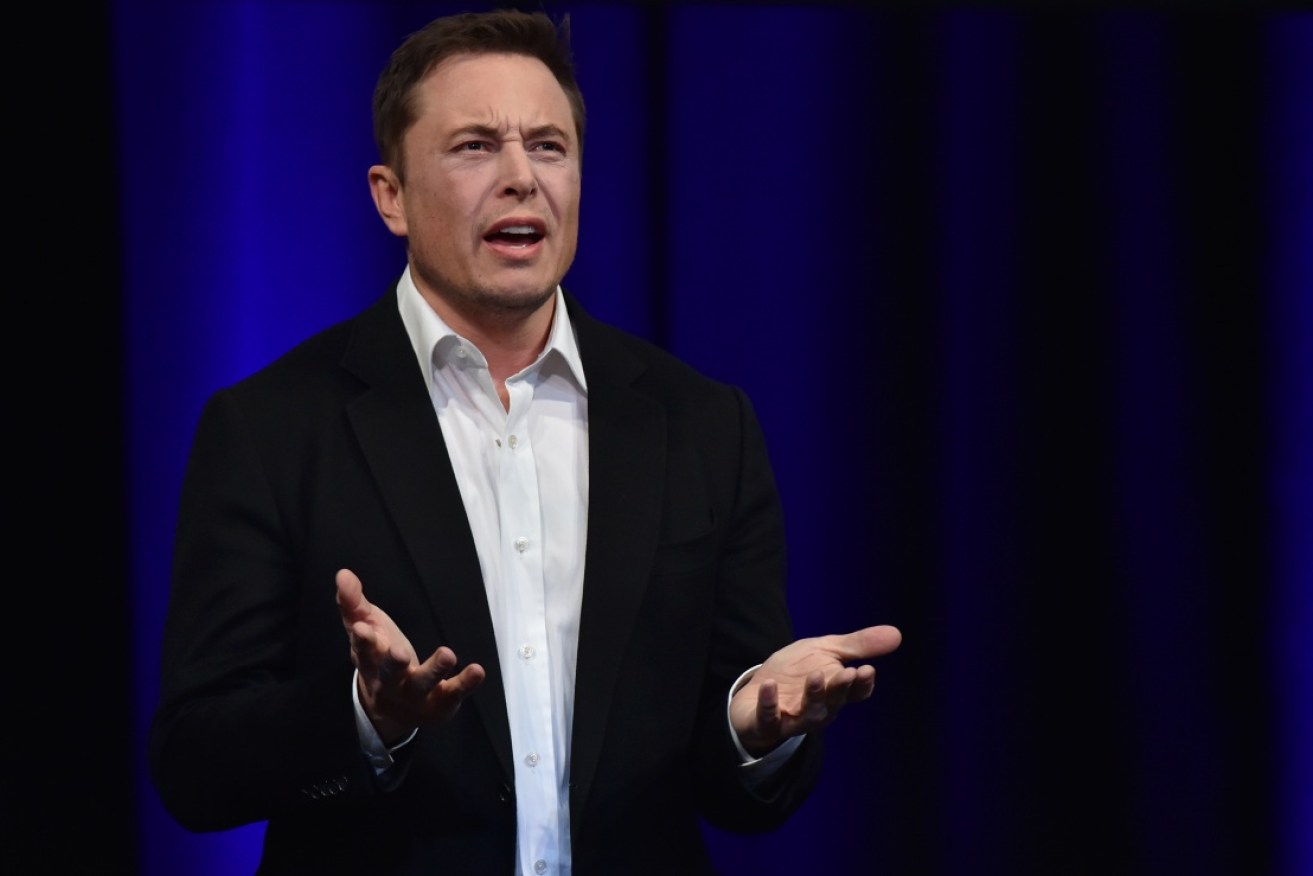Elon Musk’s broken promises are hurting Tesla. Badly


Tesla chief executive Elon Musk has been embroiled in a number of scandals in recent years. Photo: Getty
The stock price of electric car maker Tesla fell dramatically on Thursday (US time) as more investors began to question CEO Elon Musk’s exponential growth story.
Tesla’s stock price dipped more than 8 per cent to $268, a large daily fall even for such a volatile stock. The share price is now far below its 2018 highs of $367, and close to its lowest price in two years.
The fall was sparked by a first-quarter sales report that failed to impress. As the next chart shows, the company saw falling deliveries of not only its premium models – the Model S luxury sedan and the Model X luxury SUV – but also the smaller and slightly more affordable Model 3.
This was not what was wanted or expected of a company that has been valued on the premise that it will grow to rival the world’s biggest car makers.
Most concerning for investors, sales of the premium-priced, high margin section of its range collapsed in the last three months. One possible interpretation is the cheaper Model 3 is cannibalising sales of the more expensive models.
Part of the reason for the reduction in sales is that in the first three months of 2019 Tesla began to export the Model 3 to Europe and China for the first time.
It encountered multiple problems in doing so.
We’ve been so mired in production & logistics for past 18 months. Really looking fwd to getting Semi into production.
— Elon Musk (@elonmusk) March 30, 2019
In China, for example, stickers were not printed in Chinese, causing a hold up. Tesla claims a “large number” of deliveries will slide into the second quarter.
But the official narrative leaves unexplained several facts that raise questions about Tesla’s ongoing growth.
Why did sales of the more expensive Models S and X fall so dramatically? Why has the company been cutting prices?
The electric car for the masses
The Tesla Model 3 was launched in 2017 amid great fanfare and claims Tesla would make and sell 10,000 of the car a week, at as low as $35,000 each.
The stock price rose to enormous highs on that promise. Tesla, a small company by automotive standards, at one stage became the most valuable car maker in America.
That high valuation was based on the promise of ongoing rapid growth.
The soaring stock price was especially rewarding for CEO Elon Musk, who owns a large stake in Tesla.
Musk bought five mansions in the hills behind Los Angeles and has used his fortune to invest in other companies.
Musk used Tesla stock to take out loans from major investment banks, using his stock as collateral.
He has made some outrageous claims come true – who would have thought an electric car would be cool? But is his claim about the number of cars Tesla will be able to sell accurate?
Musk’s record on forecasting is mixed. For example, he predicted Tesla would be able to highly automate its California factory.
Later he was forced to scrap many automation plans.
He promised an autonomous Tesla would drive itself across America.
That has never happened either.
Musk’s attitude to the truth has come under question on more than one occasion.
In 2018 he was sued for fraud by the US government after announcing on Twitter a plan to remove Tesla from the public markets and make it a private company, at a price far above the market price.
He settled the case, but has recently been taken back to court for subsequent tweets the US government alleges are false.
In this context the fall in sales during the first quarter of 2019 raises particular questions.
Mostly, has Tesla been as open as it could be about the extent of demand for its cars?
In 2017 Tesla trumpeted that it had received 500,000 reservations for the Model 3.
That led many people to believe demand for the car would be ample to absorb every vehicle Tesla was able to produce. But the reality appears somewhat different.
Teslas are no longer only built to order, the company slashed prices across its range in early 2019, and it has engaged in multiple rounds of layoffs to cut costs.
“The reservation list doesn’t matter,” Musk told investors in early 2019.
Electric cars are fast and silent and clean. But they are a new and unfamiliar product with a higher upfront cost than the best-selling cars with internal combustion engines.
Is it possible expecting non-stop growth in sales might have been too much to hope for?
Tesla has announced it will report a financial loss for the first quarter in 2019. That was known even before the bad deliveries report came out. Now expectations for the size of the loss are rising.
One short-seller (an investor who bets Tesla’s stock price will fall) believes the company, which has never made an annual profit, could extend that streak in 2019 and lose money for the entire year.
Oh, profitability-wise $TSLA Q1 GAAP loss should be >$250 million, and at least $1 billion for full-year 2019.
— Mark B. Spiegel (@markbspiegel) February 27, 2019
Mr Musk has recently taken to Twitter to speak about the capacity of Tesla owners to one day use their cars to make money as part of a fleet of robo-taxis.
Will that be enough? Time will tell.









